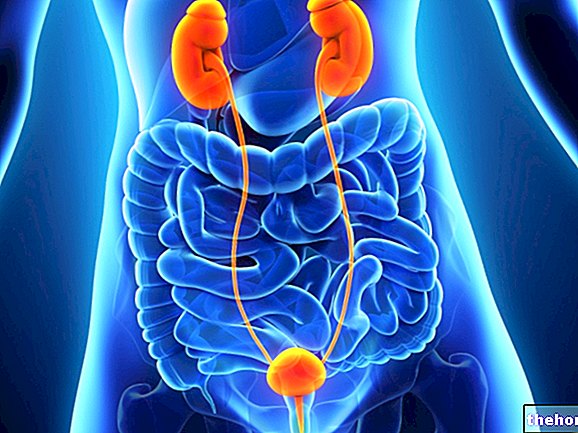Risk factors
Hepatitis A is more common among people who:
- work or travel to countries where the disease is widespread, even if they stay in luxury hotels;
- have unprotected sexual intercourse of a proctogenital or ano-lingual nature (especially male homosexuals);
- injected drugs or shared the syringe with others (especially drug addicts);
- use non-injectable drugs (the risk is lower than in the previous point, but it must be considered that drug addiction is often accompanied by poor personal hygiene standards and that drugs can be hidden in the intestinal tract or otherwise contaminated);
- they contract close relationships with infected individuals (kindergartens, schools, family members, etc.);
- eat raw or undercooked seafood.

Eating behaviors at risk for hepatitis A
- Consume raw seafood
- Consume raw frozen berries
- Consume NOT washed raw fruits and vegetables
- Drink well water
In industrialized countries, such as ours, improvements in sanitation have considerably reduced the incidence of hepatitis A, but primary prevention is still very important.
Diagnosis
Hepatitis A infection can be easily unmasked by a simple blood test, even in the absence of symptoms.
After sampling, the plasma concentration of bilirubin and transaminases (which rise in the presence of liver damage, regardless of whether it has been induced by HVA or not) is assessed.
To obtain a significant data, it is necessary to search for specific antibodies against hepatitis A in the blood sample. Since these appear in the blood only weeks or even months after infection, monitoring anti HAV immunoglobulins at an early stage involves a high number of false negatives (people who, despite being ill, appear healthy in light of the results provided by the test). Likewise, the risk of false positives should not be underestimated, since antibodies continue to be present in the blood even when the " infection cleared.
For this reason, the diagnosis is mainly based on the search for anti-HAV IgM antibodies, which appear early and disappear just as quickly after a few months; IgG anti-HAV antibodies, on the other hand, appear during the convalescence phase and remain throughout life. Consequently, IgM antibodies represent a marker of acute infection, while IgG testify to previous exposure to the hepatitis A virus and immunity to it.
Complications
In general, the severity of the disease is directly proportional to the age of the infected person. Fortunately, the infection is generally self-limiting, in the sense that the liver heals completely, usually within a month or two, without suffering permanent damage. .
Older people and people with debilitating diseases, such as anemia, diabetes or heart problems, are more prone to relapse and need more time to heal.
The most serious complication of hepatitis A, although extremely rare, is fulminant hepatitis. This is a very serious condition that causes liver failure and can seriously jeopardize the patient's survival. The risk is greater for people with a liver already suffering from certain diseases (other forms of hepatitis) or from the abuse of alcohol or certain drugs.
As mentioned, this virus does not appear to play a role in the induction of chronic active hepatitis or cirrhosis.
Care and treatment
For hepatitis A, prevention is the best cure. In fact, there is no specific cure for HAV, other than the early administration of standard gammaglobulins (antibodies) within 7-14 days of infection. Consequently, if the symptoms have already appeared, this path is no longer viable and we are limited to monitoring the progression of the disease, which, in the vast majority of cases, regresses spontaneously.
In order not to further stress a liver already tried by the infection, the patient is often asked to follow some simple dietary rules. First of all, the daily caloric amount is divided into many small snacks. At the same time, the consumption of foods that are too fatty, especially if fried or scorched, will be reduced in favor of easily digestible dishes, such as broth, soups, yogurt, fruit and vegetables. The imperative is the "removal of alcohol", at least until the complete remission of symptoms.
If you have hepatitis A, it is important to tell your doctor about all medicines you are taking, including over-the-counter products for headaches or menstrual pain. Some of these, in fact, can produce metabolites that are toxic to the liver.
Specific supplements, such as artichoke extracts, milk thistle and silymarin, provide important help, thanks to their ability to purify the liver of toxins and improve its functionality. Their use in the presence of hepatitis A must in any case take place under medical supervision, since, a bit like all phytotherapeutic products, they are contraindicated in the presence of certain diseases and could interact with some drugs prescribed to the patient.
If the disease becomes complicated in fulminant hepatitis, medical hospitalization is required, which is necessary to promptly deal with any emergencies and provide the patient with special dietary and pharmacological treatments. More complicated cases may require liver transplantation, in a desperate attempt to save the patient's life.
Related topics: hepatitis B; hepatitis C; hepatitis D; hepatitis E; Medicines for the treatment of hepatitis
More articles on "Hepatitis A: Risk Factors, Diagnosis, Treatment"
- Hepatitis A
- Hepatitis A: vaccine and prevention
- Medicines for the Treatment of Hepatitis A
- Hepatitis A diet
























-nelle-carni-di-maiale.jpg)




